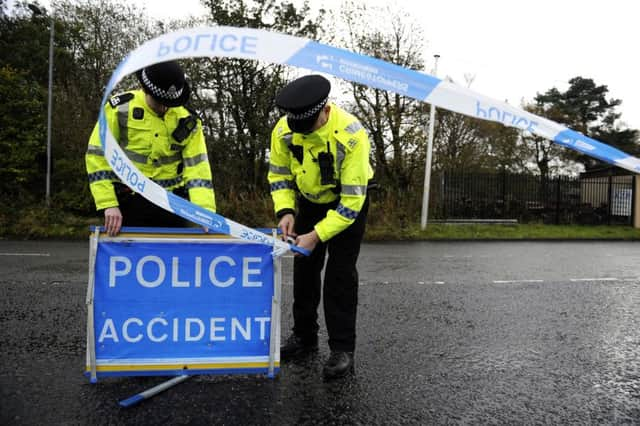Veterans at increased risk of traffic accidents, study finds


Researchers at the University of Glasgow looked at 57,000 veterans in Scotland who were born between 1945 and 1985.
The veterans had a wide range of experience and lengths of service in the Armed Forces over a 50-year period.
Advertisement
Hide AdAdvertisement
Hide AdThey found that the risk of being injured in a traffic accident was highest in people with the shortest service, including those who had never been deployed.
The highest risk was in people in their 30s, irrespective of the time since they had left service, and there was no evidence that the period immediately following discharge was especially risky.
Researchers found that more recent veterans do not appear to be at increased risk, suggesting the Ministry of Defence (MoD) road safety programme is proving effective.
Previous studies have found that risky driving is common among serving personnel and the new research suggests this may persist after leaving the forces.
The report stated: “The increase in risk in veteran car drivers accords with earlier research showing increased prevalence of risky driving behaviour in serving personnel and suggests that this pattern persists into post-service life.”
In 2002, research was published in the US which showed that people who had been deployed to the Gulf had an increased risk of being involved in a road traffic accident on returning home.
Studies in the UK showed British troops were also at increased risk on return from deployment.
In 2006 the MoD introduced a new programme of road safety education in response to growing evidence on both sides of the Atlantic of the increased risk of road traffic accidents in military personnel.
Advertisement
Hide AdAdvertisement
Hide AdLead researcher Dr Beverly Bergman said: “This is an important study which has confirmed that there has been an increased risk of road traffic accidents in military veterans which is unrelated to deployment, but it is now reducing.
“The high risk in people who have only served for a short time is likely to reflect lifestyle risk factors which are unrelated to their military service.”
The report said that future research should be aimed at more in-depth identification of risk factors, especially among early service leavers, and monitoring ongoing trends.
The study, which used data from the Scottish Veterans Health Study, is published in the journal Accident Analysis and Prevention.
A report in the Scotland on Sunday found in 2009, that soldiers returning from Iraq and Afghanistan were twice as likely to be killed in car crashes while off-duty than other drivers.
Army chiefs believe soldiers with an “I’m invincible” mentality throw caution to the wind after coming back from conflict zones, pumped up with confidence after taking on Iraqi insurgents and the Taleban, with some using money saved while posted abroad to splash out on powerful cars - which may be their first vehicle.
The army reported at the time that they believed soldiers aged between 17 and 24 were most at risk - a similar age group to that for civilian drivers. However, officers said the high death rate was despite soldiers being among the most highly-trained drivers, as many of them have to drive Land Rovers and other military vehicles as part of their duties.
In the period 2004-2009, an average of 42 British soldiers a year were killed on the roads while off duty - more than three and a half times the number killed in crashes on duty.
Advertisement
Hide AdAdvertisement
Hide AdIn an effort to reverse the trend, army driving chiefs teamed up with police, fire brigades and safety groups to drive the road safety message home.
Warrant Officer Garry Knott, an army master driver, told The Scotsman: “We train soldiers to be confident, which gives them a ‘can do’ attitude, but that also means they are more likely to take risks. It’s an attitudinal problem, not a training problem.”